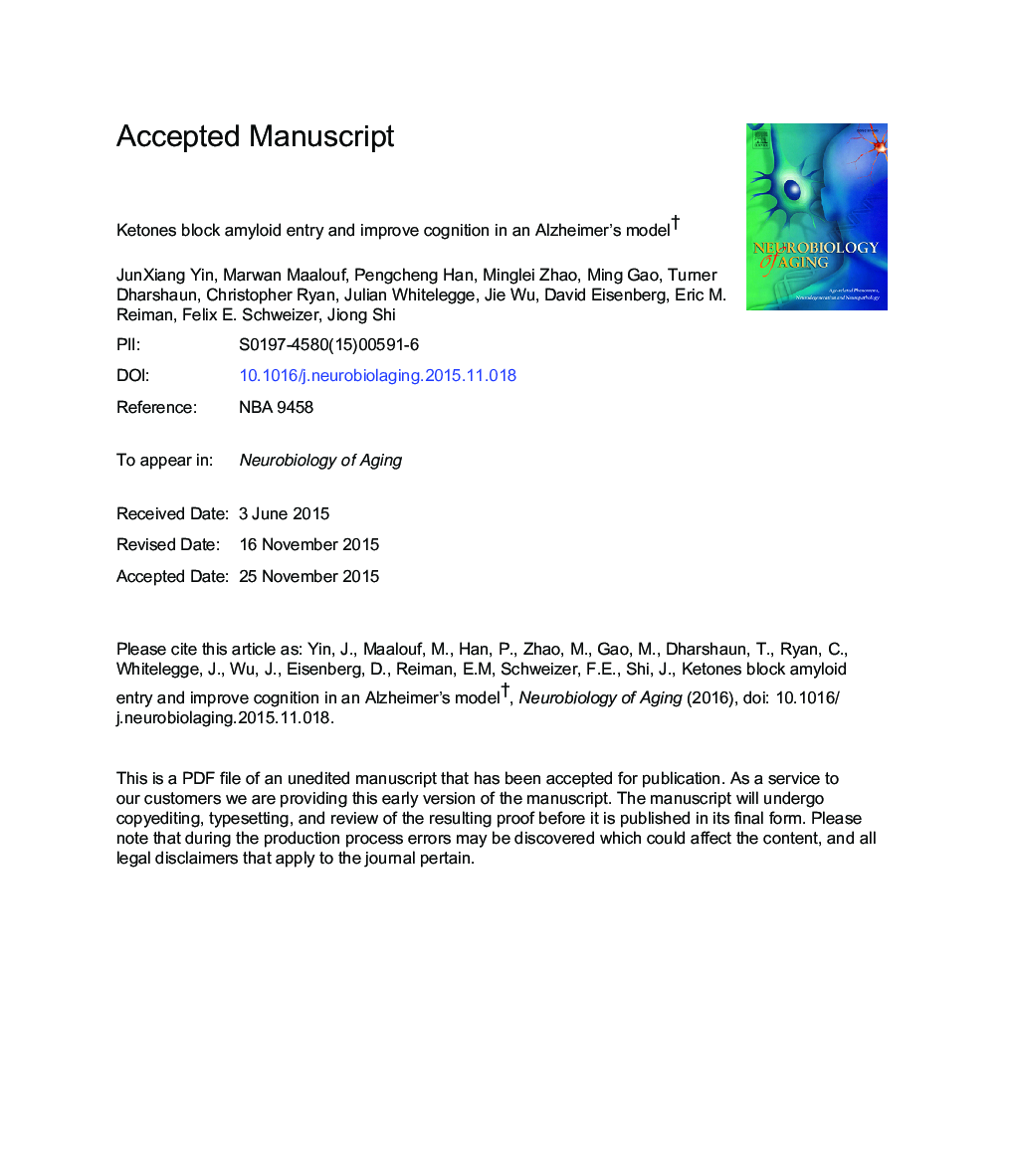| Article ID | Journal | Published Year | Pages | File Type |
|---|---|---|---|---|
| 6803576 | Neurobiology of Aging | 2016 | 45 Pages |
Abstract
Sporadic Alzheimer's disease (AD) is responsible for 60%-80% of dementia cases, and the most opportune time for preventive intervention is in the earliest stage of its preclinical phase. As traditional mitochondrial energy substrates, ketone bodies (ketones, for short), beta-hydroxybutyrate, and acetoacetate, have been reported to provide symptomatic improvement and disease-modifying activity in epilepsy and neurodegenerative disorders. Recently, ketones are thought as more than just metabolites and also as endogenous factors protecting against AD. In this study, we discovered a novel neuroprotective mechanism of ketones in which they blocked amyloid-β 42, a pathologic hallmark protein of AD, entry into neurons. The suppression of intracellular amyloid-β 42 accumulation rescued mitochondrial complex I activity, reduced oxidative stress, and improved synaptic plasticity. Most importantly, we show that peripheral administration of ketones significantly reduced amyloid burden and greatly improved learning and memory ability in a symptomatic mouse model of AD. These observations provide us insights to understand and to establish a novel therapeutic use of ketones in AD prevention.
Related Topics
Life Sciences
Biochemistry, Genetics and Molecular Biology
Ageing
Authors
Jun Xiang Yin, Marwan Maalouf, Pengcheng Han, Minglei Zhao, Ming Gao, Turner Dharshaun, Christopher Ryan, Julian Whitelegge, Jie Wu, David Eisenberg, Eric M. Reiman, Felix E. Schweizer, Jiong Shi,
